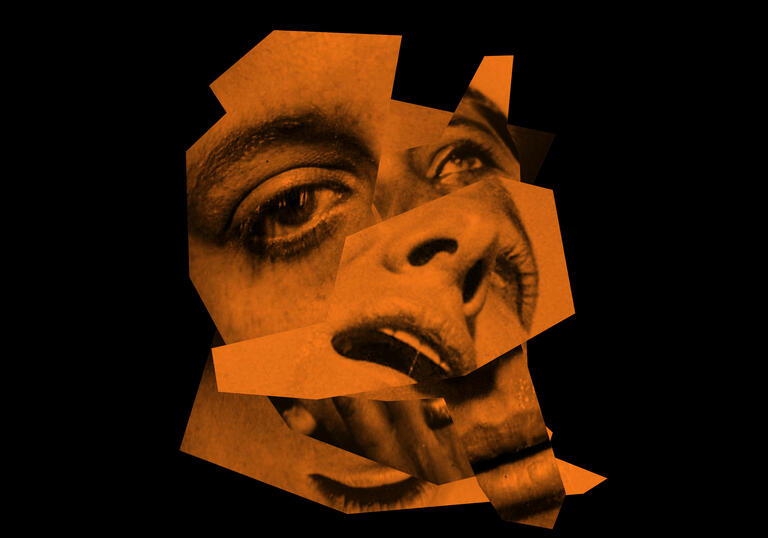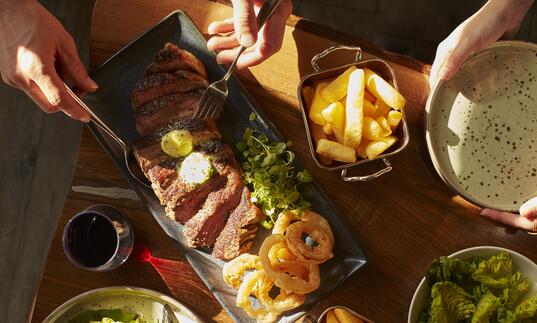When Carl Dreyer’s silent film masterpiece The Passion of Joan Of Arc was first shown in 1928, the Danish filmmaker had no power over the music that would accompany his radical, brutalist vision. The director was even said to have preferred the film to have no soundtrack at all, preferring his vast expressions of space, light and set to stand apart. With piercing close-ups, especially on Renée Jeanne Falconetti in the title role, whose eyes alone capture Joan’s evisceration at the hands of her judiciary oppressors as she stands trial for heresy and is led to the stake.
Over time, live soundtracks have come in shades of contemporary classical, rock, electronica and solo piano. Then, in 2015, British early music vocal ensemble, the Orlando Consort designed a score of plainsong and music taken from Joan of Arc’s time (1412-1431). But until Julia Holter’s Passion, no one had attempted an original choral score, one that reflected the medieval era, augmented by contemporary instruments to subtly heighten the unfolding drama; ‘the rapture and trauma of Falconetti’s Joan,’ as Holter puts it. You would imagine that Dreyer would approve of this accompaniment most of all.
Holter has now updated her score and following its premiere at Huddersfield Contemporary Music Festival on 23rd November, the Barbican is presenting the film and its new soundtrack. This major commission for the LA-based singer, songwriter and composer is the latest in Opera North’s FILMusic series of live soundtracks and features the company’s 36-strong Chorus. It’s another adventurous chapter for Holter, whose work draws on the essence of chamber folk, pop, industrial and early music with an experimental approach to vocals and song writing, explored on acclaimed albums such as Ekstasis (2012), Have You In My Wilderness (2015) and the double set Aviary (2018), the last of which made room for found text, wordless abstraction and electronic processing. The Passion Of Joan Of Arc is both a further opportunity and a challenge: Holter can dig deeper into her longstanding fascination with the art, history and music of the medieval era, but how to alchemise Dreyer’s astounding imagery in musical form?
Says Holter, ‘More than anything, we have a litany of stunningly austere, tilted close-ups of Falconetti’s incredible Joan and her ghastly interrogators, a fly jumping around between them, for about one hour and twenty minutes — there is so much powerful cinematography, without a lot of change in scenery, almost like a theatre stage. In making music to accompany this film, there is so much beauty and space given to the composer and yet I was hoping not to take advantage of that space too much; I wanted to keep the mystery.’
Holter was first asked to live-score The Passion Of Joan Of Arc as part of the LA series Unsilent Cinema. At first, she turned to Anne Carson’s essay Variations On The Right To Remain Silent, ‘in which she explores the untranslatability of the sublime,’ says Holter. ‘How, throughout Joan’s trial, the judges are trying to forcibly extricate some kind of material from Joan to manipulate into their narrative, while Joan stays true to the inexplicability of her spiritual experience with vague statements like, as Carson highlights, “The light comes in the name of the voice”.’
Holter based her original score around adaptations of two medieval chants relevant to Joan's time and story: ‘Te Deum Laudamus’, ‘which the clergy and citizens sang as the French troops returned to Orléans and church bells broke out in victory peals,’ and the popular hymn ‘Ave Maris Stella’, ‘which I liked because it celebrates Mary, the mother of God, as a female, maybe paralleling the tiny sliver of faith and hope that you see in Joan's eyes throughout the film, amidst the misery and fear that arises out of patriarchal oppression.
‘In rewriting the score for Opera North, I thought a more thorough composed notated score might be good, and to bring in more material than the two chants. I have also furthered my interest in the lost-in-translation poetic theme, especially by using a contact mic on the throat instead of a normal mic, making the words unintelligible, retaining the pitch yet tongue-less. But with the Opera North chorus, I had to figure out how to bring out that, “sublime unintelligibility”, with operatic voices as well.’
‘But there is always some muddying up between my contact mic and the chorus. There is Sarah Belle-Reid on trumpet and electronics distorting words by singing into the trumpet as well as playing. Tashi Wada’s synth provide a bed of harmonisations of the chants to work with, and against, the chorus’ melodies, and his bagpipe resonates with the trumpet swells. Percussionist Corey Fogel will punctuate the most impassioned moments on, among other things, timpani and a giant bell.’
It is quite a mammoth undertaking, but it’s no less than Dreyer’s film deserves; likewise, an artist of Holter’s ambitious standing. ‘I don’t know exactly how it will turn out,’ she concludes, ‘but I would say that usually when I feel that way, it’s a good thing! I haven’t looked forward to a project so much in a long time.’






